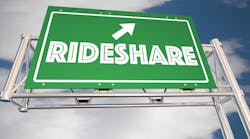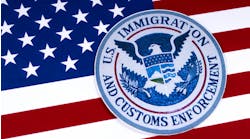On election day, voters in California chose to dial back the state’s wholesale assault on independent contractors by restoring that status to ride share and delivery drivers.
The 58% to 43% vote approved Proposition 22, a referendum designed to remove ride share and delivery drivers from a state law severely restricting who could be considered independent contractors, called AB 5. The referendum was mounted by Uber, Lyft and DoorDash, who had been among the prime targets of the legislators who wrote the new law.
Last year the state legislature passed AB 5, which went into effect on January 1 of this year. Its ultimate effect was to virtually eliminate contractor status for a wide range of professions and occupations, including truck drivers. Courts stayed the law from going into effect in regard to truck drivers while legal challenges are pending. Trucking groups argue that the law violates federal law excluding this kind of state control over truckers in interstate commerce.
AB 5 law established a three-part “ABC” test for determining whether a worker was to be classified as an independent contractor or an employee, subject to all employment laws, including workers comp and unemployment insurance requirements.
The California ABC test holds that to be considered a contractor, the worker must be (A) free from control and direction of the hiring entity in connection with performing the work; (B) perform work outside the usual course of the hiring entity’s business; and (C) customarily engage in an independently established trade, occupation or business.
It is the “B” prong of the test that makes it impossible for many people who traditionally have been considered independent contractors, like truck drivers working for trucking companies, to continue enjoying that status.
The new law sparked much outrage among many independent contractors in the state who faced the immediate prospect of losing work. Earlier this year the state legislature voted to exclude a range of professions from the strictures of AB 5, including musicians, freelance writers, photographers, consultants, youth sports coaches and even comedians.
The Proposition 22 referendum stipulates that app-based ride share drivers:
• Will be considered contractors unless the company they work for sets drivers’ hours, requires acceptance of specific ride or delivery requests, or restricts working for other companies.
• Payments must be for the difference between a worker’s net earnings and a net earnings floor based on 120% of the minimum wage applied to a driver’s engaged time and 30 cents, adjusted for inflation after 2021, per engaged mile, but not for time spent waiting.
• Drivers cannot work more than 12 hours during a 24-hour period, unless the driver has been logged off for an uninterrupted 6 hours.
• Companies must provide monthly healthcare subsidies equal to 82% the California Covered (CC) premium for drivers who average at least 25 hours a week a quarter. Drivers averaging between 15 and 25 hours a week in a quarter get monthly healthcare subsidies equal to 41% the average CC premium.
• In addition, the companies must provide healthcare subsidies for drivers who accumulate a minimum number of hours driving each quarter. Drivers also get occupational accident insurance and accidental death insurance.
• The new law criminalizes the impersonation of drivers, a practice associated in the past with crimes ranging from robbery to rape.
Impact in Other States
Also required are training programs to teach drivers about how to drive safely in traffic, accident avoidance techniques and how to recognize and report sexual assault and misconduct. Companies must develop anti-discrimination and sexual harassment policies; zero-tolerance drug and alcohol policies; and are required to conduct criminal background checks of their drivers.
Under California law, the state legislature can only amend the new law if the changes are consistent with the Proposition’s purpose and if seven-eighths of lawmakers favor the amendment.
One of the ironies of the Proposition 22 victory is that ride share drivers, who the Teamsters have spent years working to organize, were one of the main targets of AB 5, along with independent truckers. “It is no secret that AB 5 was aimed at ride share and food delivery companies, and it could end up being the case that most companies doing business in California must comply with the controversial statute except for the very companies at which it was aimed,” says Michael S. Kun, an attorney with the law firm of Epstein Becker Green.
However, attorneys for the law firm of Ropes & Gray suggest the implications could be broader. “While Proposition 22 applies solely to app-based drivers, the creation of an exception to AB 5 for thousands of gig economy workers could give legislators or ballot initiative proponents additional arguments for various other exceptions from the ABC test or perhaps even nullification of AB 5 in whole.”
Proposition 22’s passage is expected to impact similar battles going on with rideshare and delivery companies in other states as well as give possible pause to states that planned to adopt legislation to follow California’s lead regarding the classification of drivers, point out Adam Siegel and Benjamin Tulis of the Jackson Lewis law firm.
The companies who sponsored the referendum recognized these implications. Dara Khosrowshahi, CEO of Uber, comments, “Going forward, you’ll see us more loudly advocate for new laws like Prop 22,” adding that Uber hopes to “work with governments across the U.S. and the world to make this a reality.”
Anthony Foxx, who served as U.S. Secretary of Transportation during the Obama Administration and is currently chief policy officer for Lyft, adds, “I think Prop 22 has now created a structure for us to discuss with leaders in other states and Washington, potentially. We think that Prop 22 has now created a model that can be replicated and can be scaled.”
DoorDash CEO Tony Xu was equally optimistic for the future and notes the attractiveness of the new benefits package for drivers the companies had come up with. “Now we’re looking ahead and across the country, ready to champion new benefits structures that are portable, proportional and flexible.”
If they intend to achieve what they did in California, they may have to dig deep in their pockets. The “Yes on Proposition 22” campaign was bankrolled to the tune of nearly $203 million, which was reportedly the most funds that an initiative campaign had ever received in California (not adjusted for inflation). Uber contributed $57 million; DoorDash ponied up $52 million; Lyft, $49 million; InstaCart, $32 million; and Postmates supplied $13 million.
The referendum’s opponents included the Teamsters union, which contributed almost $20 million to block it. Millions of dollars of additional funding came from the Service Employees International Union, California Labor Federation, UFCW International Union and other labor groups.




